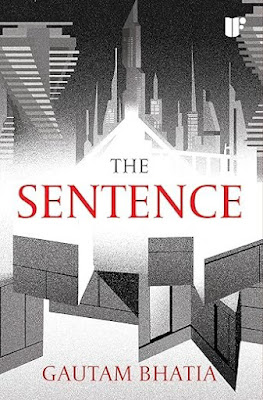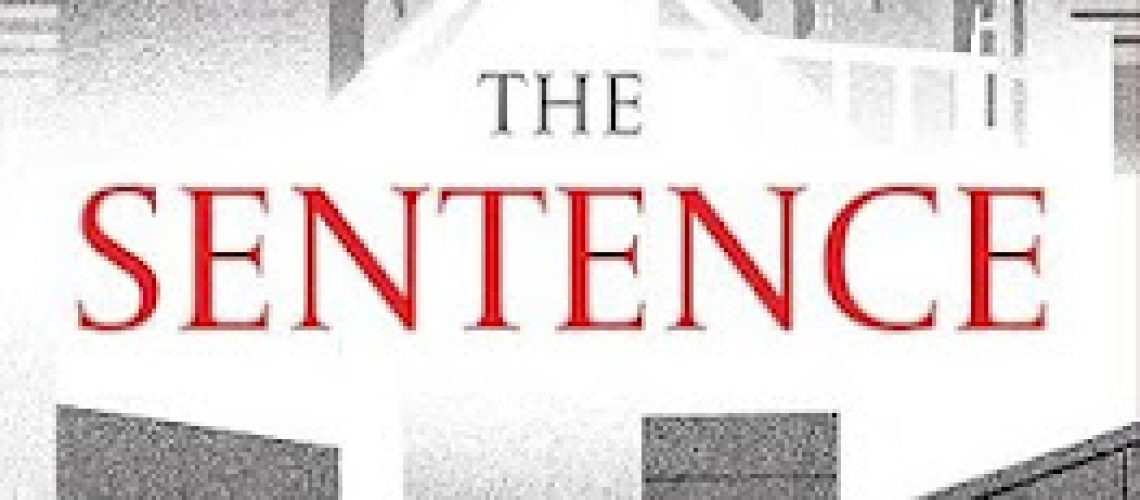Gautam Bhatia’s The Sentence has gotten me thinking about an under-utilized type of science fiction that I will use the book, as well as a couple of others, to illustrate and explicate. I reviewed the book at Nerds of a Feather, but found that I had more to say than just that review.
Take your typical epic fantasy novel. Or your average Dungeons & Dragons campaign. It’s set in a world with humans (and other fantasy species), magic and the works. Humans are, by and large with few exceptions, native to these worlds, with origins elsewhere only rarely posited.¹ Earth is just not necessary to the existence of humans in Westeros, or Huaxia, or Janloon, or the Palleseen empire. Humans arose or were created in these worlds, by and large, and it doesn’t bear questioning that this is the state of affairs in a secondary fantasy world.
But what I have noticed is that this is not true of science fictional worlds. If you have a planet of humans in a science fictional world that is not Earth, the vast majority of the time, Earth is implied or hinted at (even if extremely indirectly) as being the origin point of humanity, no matter how removed. It can be as subtle as making it clear that humans are not native to the world, implying an origin elsewhere, which eventually ties back to Earth. You can get less oblique and reference an Earth that is lost, or a homeworld that has been mostly forgotten. The pre-Foundation novels of Asimov have the slow realization by the Galactic Empire that Earth is in fact the homeworld of humanity. Other works, by authors like Poul Anderson and H. Beam Piper, might not reference at all, but they certainly make it clear that humans did not originally arise independently on a world different than Earth.
Earth is the cradle, the homeworld. It might be abandoned, lost, semi-forgotten but other worlds are almost never a replacement world where humanity grew up.² And, even as per the footnote, even given some exceptions, Earth still exists in that ’verse. A science fiction ’verse where Earth never ever existed, and humans evolved on another planet, is a pretty big ask in science fiction, which is why I think that it doesn’t happen that often.³
A recent novel and a current series defy this.
The novel is The Sentence, by Gautam Bhatia.

The Sentence takes place in the city of Peruma, on an unspecified “sub-continent”. Several centuries ago, it was the heart of an Empire that was toppled, and the continent freed and a set of city states arose instead. Peruma turned into a mercantile republic/oligarchy and has had political and sociological change and trouble ever since. But this is no lost colony of Earth from even any hint of the same; from all internal evidence, humans arose and dominated the world as if it was Earth. In theory this could be a lost colony of Earth but there is not even a whisper of suggestion that anyone travels beyond the atmosphere or ever did. The level of technology is high, higher than others in some cases. There is a single sun and a single moon. The word “Peruma” is from Tamil, and so the subcontinent is meant to invoke India, but we get no context from geography or anything else about what the rest of the world is like. There is a wonder mineral called mandalium and the mining of that is a major economic concern in the novel. And the word “Earth” doesn’t even appear in the novel at all. If it is our Earth, it is immensely far in the future so as the scars of the present (including climate change) are not impactful, but then that doesn’t explain the Indian feel of this world. It feels like the novel intends for us to accept this as a human dominated globe but it’s not a hint of the Earth we know. The novel does spend a lot of capital and pages and effort in creating the sociological, anthropological and cultural underpinnings of its society. ⁴
While I am not going to provide a full review of The Sentence here (again, you can read my full review at NOAF), although it is cumbersome to obtain at the time of writing (it is only currently published in India), if the idea of a SF legal thriller that turns on questions of sociology and society in a secondary world thrills you, The Sentence is definitely worth your time.
The series that I want to discuss in this context is Juliette Wade’s Broken Trust series (Mazes of Power). This is a series in which I got to read a relatively early copy of the first novel, and had long conversations with the author about it. One thing that concerned me here, and kept in my mind, prompted in my brain in the discussion of The Sentence. The author was concerned about how to set up her world, a completely science fiction and non-magical world, one that never had had a connection to Earth. The author and I discussed the problems of how to have a science fiction novel set on a world that never had anything to do with Earth and try to convey that to the reader.
Her eventual solution, to help convey this to the reading audience, is to put the following frontispiece at the beginning of Mazes of Power:
“Varin is a place where humans have always lived on an alien world. It is also your home.”
With that sentence, Wade makes it clear that humans originated on Varin and live on Varin⁵, naturally, just as naturally as humans in a secondary world fantasy. But the fact that she felt that this is needed fascinates me, especially since Bhatia did not do anything similar with The Sentence.
I fully review Mazes of Power, for those interested, at Nerds of a Feather.
And it must be noted that both the series by Wade and the novel by Bhatia intensely explore sociological ideas and themes, and societies, in a LeGuinian manner. Mind you, Peruma in The Sentence and Pelismara in Mazes of Power are about as different as you can get in terms of sociological set up, and yet both novels explore the human condition and human politics and are speaking to our own age, our own society, our own problems.
But it fascinates me, again, that so few science fiction novels are willing to explore this science fictional place in this manner. Studying of weird human societies does occur in science fiction works all the time. It can happen sometimes in a lighthearted manner, such as the worlds of Jack Vance, and sometimes in a much more serious LeGuin mode. (Vance, too, in his Oikoumene could have some really serious diving into human societies, as opposed to more lighthearted stuff.) But the societies we see almost always seem to take place in the future, in our universe. The idea of having a SFF novel, without magic, have humans and human societies arise on a planet that has nothing to do with Earth, seems to be a frontier that can fit more books and stories. Given the stunningly interesting ones from Wade and Bhatia, I’d love for more authors to dare to tread in these sociological waters, and dare to imagine science fictional human societies arising on worlds without any connection to Earth, even in the slightest.
¹ A notable exception: Raymond Feist has characters posit in his Riftwar saga (which involves an interdimensional invasion from one fantasy world to another) that both worlds must have been seeded from elsewhere, since both worlds, prior to any contact, share things in common, such as chess.
² Exceptions? H. Beam Piper’s multiverse stories have Mars as the origin point of humanity, which keeps it in the solar system, at least. LeGuin’s Hainish novels DO have Earth as a colony of Hain. And of course, in visual media, one can never forget Battlestar Galactica. But Battlestar Galactica does it because of its roots as a metaphor for the Mormon experience.
³ Basically the idea is that science fiction stories and novels can only provide so many things outside the experience for a reader to believe in before it topples over its own weight, and so authors have to, for readers not to be lost, not overwhelm them with too many things outside of their experience. Imagine a science fiction novel set in 22nd century Earth where climate change has been dealt with…with invading aliens that look like anthropomorphic elephants…who wield science as magic…and now human society is now all polyamorous neo-feudal marriage groups…and there is a special drug that allows the expansion of human consciousness…oh and there are vampires secretly among the human population, too.
⁴ A possibility is that this is a alternate history novel but with the point of divergence *way* back so that societies and powers developed on the subcontinent without interference from without. That doesn’t explain the novel wonder mineral, though.
⁵ Well, they mostly live underneath Varin in underground cities. The surface of Varin is not the most pleasant of places So the cities underground are decaying and dying pressure cookers, a society on the decline and slowly realizing it. This makes Varin even more extreme, sociologically, than Peruma in that regard.







